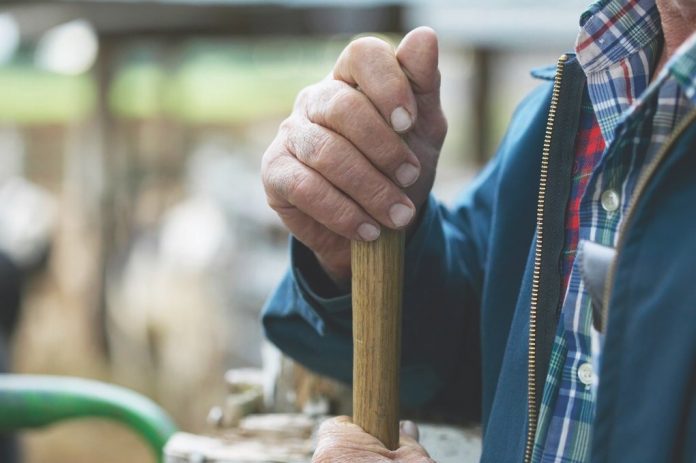The Pennsylvania Department of Agriculture launched a free crisis hotline specifically for farmers and other members of the state’s agricultural community.
The AgriStress HelpLine is open 24 hours a day, seven days a week. The number is 833-897-2474.
The staff answering the hotline has received 300 hours of crisis hotline training and an additional 3.5 hours of training specifically on agricultural stressors.
“What we’re excited about is the staff answering that line understand farming,” said Natalie Roy, executive director of AgriSafe Network, a national nonprofit aimed at reducing health disparities in agricultural communities. “They’re not going to tell a dairy farmer to take a two-week vacation.”
Origins
The hotline is the first of its kind in terms of a crisis helpline specifically designed for farmers, Roy said. The state is partnering with AgriSafe to launch the pilot program, which is also being piloted in Texas and Wyoming.
The hotline is funded by a $500,000 grant from the U.S. Department of Agriculture’s National Institute of Food and Agriculture Farm and Ranch Stress Assistance Network. Grant monies also went to expand mental health resources through the Center for Dairy Excellence and launch a regional collaboration with National Young Farmers Coalition.
While it’s no secret that farming is uniquely stressful, Agriculture Secretary Russell Redding said the gravity of the situation was driven home at a mental health roundtable hosted by state Sen. Elder Vogel, R-New Sewickley, in Beaver County in February 2020. Vogel is chair of the senate agriculture and rural affairs committee and a former dairy farmer.
People from across agriculture and healthcare gathered to discuss how difficult it is overcoming the stigma surrounding seeking help and to find affordable and accessible help from someone who understands the challenges farmers face.
“Farmers often work alone, live where they work and encounter pressures of changing markets, unpredictable weather, business transitions and legacy,” Redding said Feb. 11 at a virtual press conference announcing the new helpline.
Making a call
When someone calls the hotline, they’ll be asked to put in their ZIP code first. The call will then be routed directly to a trained crisis specialist. All calls are confidential.
“Crisis specialists will work with callers to establish safety, access coping mechanisms and explore next steps such as accessing available mental health and agricultural resources,” said Tara Haskins, total farmer health director for AgriSafe. “This process is defined by crisis hotline protocols through the lens of agricultural stress.”
Callers will be offered a follow-up call in 24 hours to check in and explore further options and resources. If the caller can’t answer or changes their mind about receiving the call, staff will leave a message that won’t reveal the nature of the call if someone else picks up or hears the message.
Helpline staffers are trained in FarmResponse, a continuing education course for healthcare professionals that’s part of the AgriSafe network, said Tara Haskins, total farmer health director for AgriSafe.
In it, they will learn about the causes of agricultural stress, how stress is expressed in the ag community, barriers to care and strategies to foster conversations. AgriStress helpline staff must undergo FarmResponse training annually, as well as quarterly trainings to stay up to date with what’s going on in the agricultural community.
“AgriSafe serves as a conduit between our state partners to communicate emerging agricultural issues in each contracted state such as weather, disasters, price, production issues,” Haskins said. “The goal is to keep the AgriStress Helpline staff aware of current stressors and emerging issues in the contracted states.”
(Reporter Rachel Wagoner can be contacted at 800-837-3419 or rachel@farmanddairy.com.)










